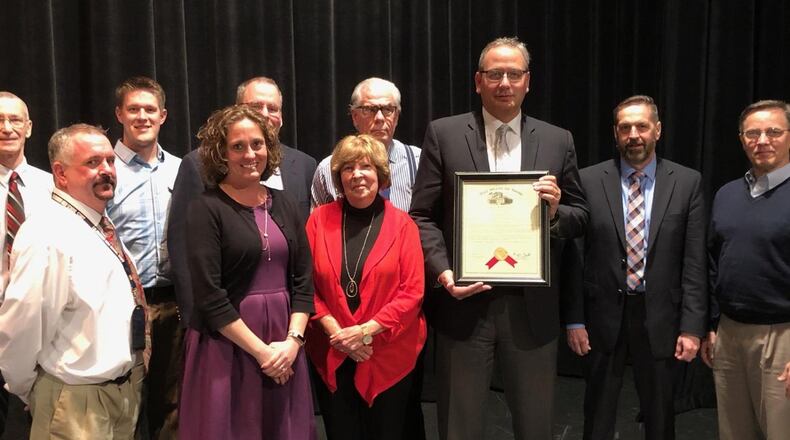School counselor Teresa Peter serves as the contact person in the building for the program. She explained the students who will be involved with the program will be chosen through nominations by this year’s students in freshman, sophomore and junior classes. Seniors were not asked to submit nominations because the Hope Squad will not begin operation until the fall when current seniors will be gone.
“Students could nominate three students. We put all the results together,” Peter said, adding the names most often showing up were consistent. “We looked for 30 and came up with 29. There were a lot of nominations.”
That was followed by a letter to each congratulating them and inviting them and their parents to a meeting for more information about the program. She said the students or their parents were free to decline the nomination.
“We could have a few drop. Parents may not be comfortable,” she said. “We have a good cross-section of kids from all facets (of school life). They are good listeners. A lot of it is just being a good person.”
Funding for the Hope Squad program came from a $7,000 suicide prevention grant administered by the Butler County Family and Children First Council.
Amy Macechko, Talawanda district health and wellness coordinator, said the grant was intended for an evidence-based suicide prevention program for the high school. She said they looked at various programs and decided on Hope Squad.
“Hope Squad is a national initiative with the opportunity to empower high school students identified by their peers as good listeners and go-to students in the building who are there for each other,” Macechko said. “We will provide them with the skills and education they need so they can identify when one of their peers is in crisis, not doing well, and can reach out to them in a caring, non-judgmental way and empower them to go to one of the caring adults in the building.”
Those adults are also to be student-nominated and trained to deal with teens in crisis. Two teachers, in addition to Peter, will have that training.
Peter said there is a whole curriculum for the student and adult training work and she said that would begin this semester with some preparation work planned for August before the opening of the next school year.
Hope Squad was started in Utah and was brought into Ohio spearheaded by the mother of a St. Xavier High School student who had committed suicide. Here, it is coordinated by Grant Us Hope, which provides the training curriculum and pairs schools which support each other in the work.
Talawanda will be working with Ross, which is also new to the program.
Peter said she and others from Talawanda visited Deer Park High School which started Hope Squad last fall.
“A slew of schools started in the fall or will start next fall,” she said.
The program came to Talawanda after former Superintendent Kelly Spivey heard about it at a conference a year ago and brought it to Macechko, who got Peter involved.
It’s that student/adult connection Macechko sees as crucial to the success of the Hope Squad initiative.
“I see young people as the eyes and ears in the building. They will look out for each other and connect (those in need) with the resources in the building that will help them. It’s not like a one-time program. People are trained to help their peers,” she said. “I’m happy it gives students skills and training to be a good friend but they do not have to take on responsibility by themselves. They will recommend (students go to) trained caring adults in the building.”
About the Author
